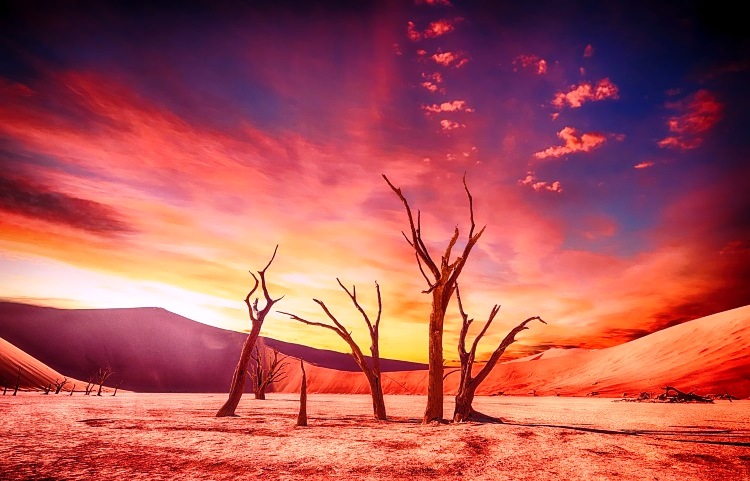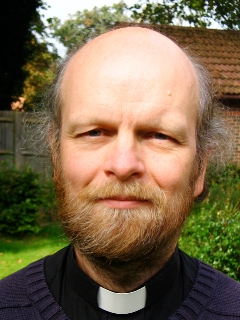|
Lent began last Tuesday
30th March 2020

Andrew Bryant has found a source of solace and hope during this wilderness experience which he, and no doubt may others, are currently going through
On Tuesday March 17 the Archbishops announced the suspension of public worship. As we processed into Evensong that day, we all knew that for at least some of our choristers this would more than likely be the last time they sang in our choir, as they are unlikely to return before the end of the music year.
In one of those God-given moments the Bishop happened to be present. His words to us before the final blessing brought home the enormity of our changed circumstances. As the choir processed out there was a deep stillness in the building. It felt that Lent had truly just begun, and we had been driven into the wilderness.
The season of Lent can often feel rather artificial. Giving something up for Lent is a poor expression of the true tradition of a fast. Lent books so often lack substance, and study groups seem to cover the same territory each year. It all feels too neat a package. We sing of forty days and forty nights but precisely because we know that it will come to an end at a known time, it lacks any real sense of the wilderness.
But this time of social isolation, and the associated suspension of public worship, feels as Lent should surely really feel. We have been driven into the wilderness. All the familiar landmarks of life are gone. We have no idea how we will survive – and for some even if they will survive. And we have no idea how to leave the wilderness; there is no map – as never before the path will have to be made by walking it.
The biblical temptations suddenly take on a fresh and all too real meaning. The longing for some magic solution (stones into bread), a dramatic gesture (jump from the temple roof) or to get back control at any price (bow down and worship me). But what we really discover is our helplessness, our powerlessness. We are lost. It is easy to enter the wilderness but much harder to leave.
The challenge is how to live well in the wilderness when it feels as though you are in free fall. How do we maintain our wellbeing when the familiar has become so unfamiliar? How can we feel safe when the threat is invisible? The deepest challenge is what kind of person will I be in this wilderness. In what, in whom, will I trust?
Everything in me wants to scream, “Let me out!” Yet somehow, I have to embrace this wilderness, learn, as if for the first time, to discover the true meaning of Lent. It is not going away. It is here and there is no choice but to face it. Standing in this unknown territory I am drawn once again to the prayer of the Desert Father, Abba Macarius:
Lord as you will and as you know, have mercy upon us and help us.
Although it feels like being in free fall, I have to trust that there is One who holds and who does not let go. The wilderness tests me but still I know there is One who holds us safe in a way I cannot comprehend and who understands all our needs before we even utter them. In the Divine will for all things my needs are also known and understood. My hope is in God’s mercy and help.
The only way I know through this time of trial and testing is to put my hand in God’s hand and walk through the middle of the wilderness. Truly God alone knows where this journey will end and, in my not knowing, that has to be enough.
the wilderness image above is courtesy of pixabay.com
this article also appeared on Network Norfolk
 The Revd Andrew Bryant is the Canon for Mission and Pastoral Care at Norwich Cathedral. He was previously Team Rector of Portishead, Bristol, in the Diocese of Bath and Wells, and has served in parishes in the Guildford and Lichfield Dioceses, as well as working for twelve years with Kaleidoscope Theatre, a charity promoting integration through theatre for young adults with Down’s Syndrome The Revd Andrew Bryant is the Canon for Mission and Pastoral Care at Norwich Cathedral. He was previously Team Rector of Portishead, Bristol, in the Diocese of Bath and Wells, and has served in parishes in the Guildford and Lichfield Dioceses, as well as working for twelve years with Kaleidoscope Theatre, a charity promoting integration through theatre for young adults with Down’s Syndrome
You can read Andrew's latest blog entry here and can follow him via his Twitter account @AndyBry3
The views carried here are those of the author, not of Network Yarmouth, and are intended to stimulate constructive and good-natured debate between website users
We welcome your thoughts and comments, posted below, upon the ideas expressed here
Click here to read our forum and comment posting guidelines
|
|
|
|